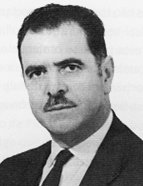

His father, Domingos Gomes de Sá, was a sergeant (later lieutenant) in the Military Secretariat, and had been part of the expeditionary force in Mozambique during the First World War. His mother, Florinda Baptista da Silva André, was a primary school teacher. His childhood was spent in the village where he was born but he completed his primary education in Braga in 1932 with distinction. In October of that year, he decided to enter the Seminary of the Holy Ghost Missions in Godim, Régua, with the idea of becoming a missionary in Africa. In 1934 he returned to Braga, without having finished the first year of secondary school studies in the Seminary. Between 1934 and 1941 he attended the Liceu Nacional de Sá de Miranda in Braga, where he completed his secondary education. Whilst still at high school he was already making a name for himself for his participation in other activities: his first articles were published in the Correio do Minho in 1937; he was a student leader and president of the Academia Bracarense, where he promoted various initiatives (for example, starting a small lending library); and he became an opponent of the climate of hatred towards the Republicans which he witnessed in Braga at the end of the Spanish Civil War. When he finished his secondary school course he decided to interrupt his studies – “disenchanted with the nature of secondary education” as he later declared – and invest his time in other interests: books, reading, reflective thought, and cultural and civic education.
He became an employee of the Livraria Gualdino, a local bookshop, and used some of the money he managed to save to buy books which, after having read them, he made available to others to read at home. This is how the ‘Mobile Library’ appeared, an experience he recalled in a small work of 1954. He continued to collaborate regularly with the local and regional press and went ahead with publication of his first books – one on the thought of Antero Quental (1942) and the other on the bibliography of Eça de Queirós (1945).
Aware of what was happening in his country and in the world (the time being the middle of the Second World War), he set up a “centre of resistance and ideological education” in Braga in which Armando Bacelar, Francisco Salgado Zenha and Flávio Martins, among others, took part. By this time he was already married and had changed his job and was now working at the Livraria Cruz. In 1944-1945 he devoted his time to trade union activities, took part in the agitation following World War Two and joined the Movement of Democratic Unity (MUD). Henrique Barreto Nunes, one of the researchers who knew Victor de Sá best, mentions that “his first contact with members of the Communist Party must date from this period”.
